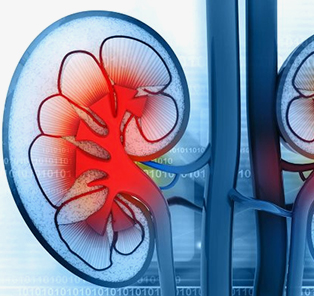Diabetes and Hypertension Related Kidney Disease

How Diabetes and Hypertension Can Contribute To Kidney Disease Kidneys play a crucial role in proper functioning of our body by filtering blood of the waste products and helping maintain the fluid balance. If even one of the kidneys is affected by some disease or infection, it can upset the balance of your balance of your health by interfering with its ability to filter the blood of natural waste products. It would be important to understand that kidneys help maintain a healthy blood pressure and high blood pressure, also known as hypertension, can adversely affect kidneys and even result in chronic kidney disease (CKD).
It may not be so easy to diagnose if one has hypertension because apparently there are little, if any, symptoms characteristic of high blood pressure and it is important to regularly monitor blood pressure. The situation could be far worse if one is suffering from diabetes as well. Diabetes leads to high levels of blood sugar, thus making the kidneys overwork and filter more blood than they can properly. Over a span of time, the filtering mechanism of kidneys is impaired and as a result blood starts losing useful proteins in the urine.
When small amounts of protein start appearing in the urine, the condition is known as microalbuminuria. If diagnosed at this stage, the condition can be managed with proper treatment but if too much time is lost before the problem is pinpointed, larger amounts of protein could be present in urine, which is known as macroalbuminuria. When diagnosed with macroalbuminuria, it can lead to end-stage renal disease leaving doctors with but little choice other than recommending a kidney transplant or dialysis, which involves artificial filtering of the blood. Together, high blood pressure and diabetes make for a menacing combination as far as health of the kidneys is concerned.
However, effective medication and treatment are available to manage these conditions in order to keep the situation from becoming more complicated. If one has diabetes, it is important to assess the stage and type of diabetes and it is also important to study if the patient has a history of high blood pressure. A rise in blood pressure can quickly contribute to worsening of kidney disease and the best way to manage this condition is keeping the levels of blood glucose and blood pressure under control. Regular exercise, balanced diet, lower salt intake and avoiding consumption of alcohol and tobacco can be of great help in managing these factors in an effective manner.
TAGS
Urinary tract infection treatment Nephrotic Syndrome Treatment


